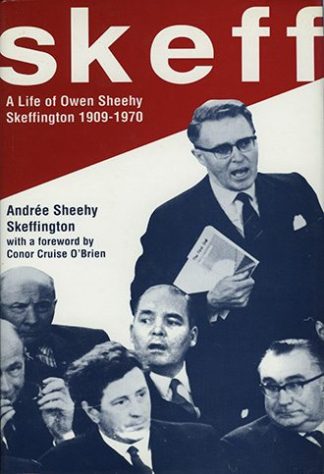
Winter Bayou
By: Kelly Sullivan
Publication Date: September 2004
€11.00
Winter Bayou by Kelly Sullivan
‘Each time we lay down together, I thought of pounding fetlocks, the flex of tendons, the press of horse shoe against my chest, the ring of purple flesh it would leave on my stomach, his galloping, galloping into me…’
Each night, after, I filled the space we’d made with the whine and later the voice of the violin, my voice, coming quicker and quicker, my fingers finding the notes through his hair, quicker and quicker through my bow arm sweeping across the strings, down the flutes of muscle on his back. It came mellow and low then quicker and harder and pizzicato and striking each note, forcing it from the wood and into the still sycamores, pin oaks, maples. Always, the violin called between the spaces.’
In this stunning fictional début Kelly Sullivan explores of the inner life of Grace: mother, wife, and talented violinist. Finding release only in her music, Grace exists in a state of profound emotional paralysis, until the storm.
18 August 1969 – Hurricane Camille ravages all that lies in her path; at a party in Mississippi drunken revellers eagerly await her arrival. As they sway to the sound of a stereo hi-fi, outside ‘the trees whip by and the rain whips down’. Twenty-four people die inside the beachfront building when it’s razed ‘flatter than a winter bayou’.
Speeding over drifting sand, Grace, her husband and his newly acquired lover make a last-minute dash to safety. In the days that follow, Grace surveys the destruction wrought by the tempest. Like the wood of her beloved violin, her fractured ego risks crumpling under the pressure: ‘Too much moisture and you’re gonna warp her, but too little and you’ll have more cracks,’ the violin repairman had warned.
In Winter Bayou, Grace journeys through the past, from the heady rush of teenage love to a marriage ‘ripped apart too … shredded and pushed beyond our boundaries’ – her meditations forming a perfectly poised novella as lyrically tender as it is viscerally sensuous.
‘This is a beautifully-written debut novella, a diary-like first-person narrative which circles around themes and repeats motifs in a delicate analogy with the music that is the book’s driving force. A treat for those who enjoy the work of Virginia Woolf, Elizabeth Bowen and Kate Chopin, Sullivan’s elegiac style evokes these modernist writers in its poetic sensuality and feminine aspect.’ – Customer review
ABOUT THE AUTHOR
KELLY SULLIVAN, was born in Lancaster County, Pennsylvania, in 1979. She graduated from Skidmore College (Saratoga Springs, New York) in 2002, and was awarded a Fulbright Scholarship to study in Ireland in 2002/2003. She lives in Dublin.
| ISBN | 9781843510468 |
|---|
| Weight | 0.25 kg |
|---|---|
| Dimensions | 136 × 215 mm |
| Publication Date | September 2004 |
| Format | Paperback, 128pp |





Lilliput Press –
“This is a beautifully-written debut novella, a diary-like first-person narrative which circles around themes and repeats motifs in a delicate analogy with the music that is the book’s driving force. A treat for those who enjoy the work of Virginia Woolf, Elizabeth Bowen and Kate Chopin, Sullivan’s elegiac style evokes these modernist writers in its poetic sensuality and feminine aspect. Perhaps the echoes of Chopin are clearest, with both writers sharing the same geographical landscape as well as many stylistic and thematic traits.
The story opens in 1970 with the account of a hurricane destroying the New Orleans home of the narrator, Grace Wright. Her marriage to husband Charlie is quickly shown to be in a similar state of wreckage, with evidence of his openly unfaithful behaviour at a party on the night of the storm providing a stark introduction to the story of their marriage, a story told through a series of flashback diary-entries scattered throughout the years 1939-1969. These flashbacks also detail Grace’s slow-moving potential affair with local butcher Henri Rossi, but most importantly, her narrative focuses on and describes Grace’s increasing obsession with music and the violin.
The music and physical nature of the violin are allied powerfully with Grace’s feminine identity, and stand in the book’s texture against the overt masculinity of Charlie, the latter associated repeatedly with images of horses and trains. In a world where verbal and sexual communication can only offer her a submissive role, her relationship with the violin provides the sole outlet for Grace’s interiority. Indeed, the text of her story is influenced and framed by the six lessons of Igor Stravinksy’s The Poetics of Music.
As a relative novice to music and musical form, I am thus perhaps not best placed to fully judge the book on all its merits. Much in the same way that a reading of Thomas Mann’s Doctor Faustus is enhanced by musical proficiency, I felt that my lack in this regard meant I missed much of the subtlety of the musical patterning and referencing in the text. It must also be said that as a male, I perhaps could not sympathise with the passive Grace to the implied degree, instead often feeling for the helpless would-be-lover Henri, and even at times for the blatantly dislikable Charlie. This meant that the text’s slow and deliberate repetition wore a little at times during my reading.
Nevertheless, as a document of femininity in a mid-century rural America in the throes of modernization, Sullivan’s work evokes and deserves favourable comparison with Chopin’s The Awakening. This is a mature piece by a young author, indicating that more is to come in the future, perhaps in a longer form with a broadened range of narrative voices.” ADAM KENNY